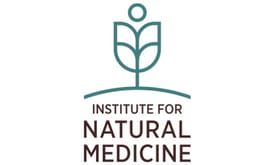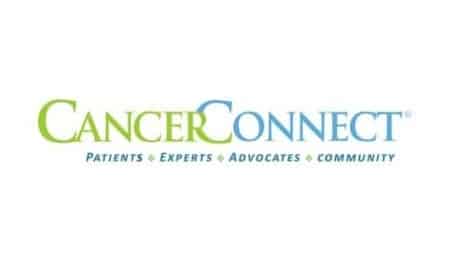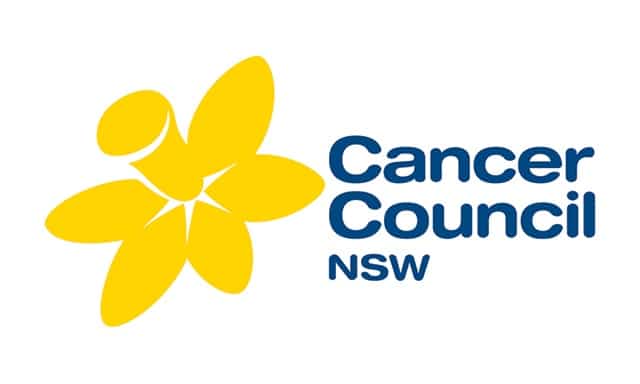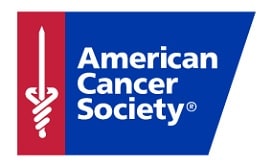Heartburn at a glance
Cancer and related treatments can sometimes cause heartburn. We provide information on what can increase your risk of heartburn and ways to manage it.
Heartburn: an overview
What is heartburn?
Heartburn is a burning sensation in the throat or chest. Frequent heartburn can be a symptom of gastroesophageal reflux disease (GERD) when stomach contents back up into the esophagus. GERD can lead to ulcers, and can also increase the risk of esophageal cancer.
What can cause or trigger heartburn with cancer?
- Some chemotherapy drugs
- Radiation to the chest
- Tumor growth in the esophagus
- Yeast infections in the esophagus
What else can cause or contribute to heartburn?
Excess stomach acid or anything that causes material from the stomach to back up into the esophagus can cause heartburn.1American Cancer Society. Hiccups and Heartburn. June 26, 2024. Viewed October 9, 2024. Common causes relevant to people with cancer:2Hungin AP, Yadlapati R et al. Management advice for patients with reflux-like symptoms: an evidence-based consensus. European Journal of Gastroenterology and Hepatology. 2024 Jan 1;36(1):13-25.
- Drinking caffeine or alcohol
- Certain medications, such as steroids, aspirin, ibuprofen, antibiotics, and some heart medications
- Spicy foods
- High-fat foods
- Smoking
- Disordered sleep
- Unmanaged stress and anxiety
- Hiatal hernias
- Yeast infections in the esophagus (i.e. from certain chemotherapy drugs that irritate the mucus membranes and weaken the immune system)
Excess body weight is a risk factor for heartburn.
What are signs and symptoms of heartburn?
Heartburn is often experienced after eating or while lying down. Common symptoms:
- Burning in the chest and/or throat
- Bloating or pressure in the abdomen
- Nausea and vomiting
- A sour taste in the mouth
- Cough, or shortness of breath
Top evidence-based practices and therapies for managing heartburn
Finding and eliminating the cause of your heartburn, when possible, is the best approach, followed by identifying the most effective treatment.
Recommendations from experts
These therapies and practices are recommended by expert consensus of gastroenterologists and primary care doctors based on a 2024 review of evidence:3Hungin AP, Yadlapati R et al. Management advice for patients with reflux-like symptoms: an evidence-based consensus. European Journal of Gastroenterology and Hepatology. 2024 Jan 1;36(1):13-25.
- Eating Well includes identifying and avoiding foods that trigger heartburn—citrus, tomatoes, highly spiced foods, fatty foods, fried foods, chocolate, alcoholic beverages, coffee, or carbonated beverages—as well as avoiding overeating and not eating right before bed.
- Moving More involves moderate, regular exercise for overweight or obese people with heartburn to reduce symptoms. See How to Move More ›
- Body position can impact the amount of heartburn. Avoiding lying down after a meal.
- Don’t smoke. Ask your doctor about support to quit smoking if you smoke. For sources of support in making changes, see Healthy Lifestyle ›
- Wear loose clothing. Avoid wearing items that are tight around your waist.
- Lose weight if overweight, obese, or have recently gained weight. Even a few pounds can help reduce symptoms.
- Raise the head of your bed and sleep on your left side if you experience heartburn at night.
- Avoid lying down after a meal and leave three hours between eating and bedtime if you experience heartburn after a meal or at night.
- Diaphragmatic breathing training can help manage symptoms. See Diaphragmatic Breathing › from the Cleveland Clinic.
- Stress management strategies may reduce symptoms. See What practices and therapies can help with stress? ›
- Brain-gut behavioral therapies such as cognitive behavioral therapy (CBT) or gut-directed hypnotherapy have been effective for people with reflux-like symptoms and signs of esophageal hypervigilance and/or psychological distress. Find a Therapist › from Psychology Today.
- Antacids, alginate-antacid combinations, or products containing hyaluronic acid and chondroitin sulfate are effective at controlling heartburn. Check with your doctor or pharmacist before taking over-the-counter medications.
Conventional therapies
Many conventional medications for heartburn/reflux are available, many of them without prescription (over-the-counter). Many antacids and other over-the-counter heartburn relief medications as well as home remedies, such as baking soda, interact with many drugs, can worsen some chronic illnesses, and cause their own side effects. Before taking over-the-counter medications, we encourage you to consult your doctor or pharmacist to check for possible interactions with other medications you use or other safety issues. Let your doctor know if your symptoms persist or become worse.
Long-term use of some anti-reflux drugs, such as proton pump inhibitors (PPIs), can lead to serious health problems, including increased risk of stomach cancer4Abrahami D, McDonald EG et al. Proton pump inhibitors and risk of gastric cancer: population-based cohort study. Gut. 2022 Jan;71(1):16-24. and Barrett’s esophagus—a risk factor for esophageal cancer.5Zhao Z, Yin Z, Zhang C. Lifestyle interventions can reduce the risk of Barrett’s esophagus: a systematic review and meta-analysis of 62 studies involving 250,157 participants. Cancer Medicine. 2021;10(15):5297-5320. We strongly advise medical supervision when using these medications. The American Gastroenterological Association’s 2020 clinical practice update on functional heartburn states that “PPIs have no therapeutic value in functional heartburn, the exception being proven GERD that overlaps with functional heartburn.”6Fass R, Zerbib F, Gyawali CP. AGA clinical practice update on functional heartburn: expert review. Gastroenterology. 2020 Jun;158(8):2286-2293.
Complementary therapies
Rikkunshito is a traditional Japanese medicine comprising eight herbs. In several studies, people with gastroesophageal reflux not related to cancer have shown fewer heartburn symptoms when treated with rikkunshito, often in addition to conventional medications.7Kawahara H, Tazuke Y, Soh H, Yoneda A, Fukuzawa M. Physiological analysis of the effects of rikkunshito on acid and non-acid gastroesophageal reflux using pH-multichannel intraluminal impedance monitoring. Pediatric Surgery International. 2014 Sep;30(9):927-31; Sakata Y, Tominaga K et al; G-PRIDE study group. Clinical characteristics of elderly patients with proton pump inhibitor-refractory non-erosive reflux disease from the G-PRIDE study who responded to rikkunshito. BMC Gastroenterology. 2014 Jul 2;14:116; Tominaga K, Iwakiri R et al; GERD 4 Study Group. Rikkunshito improves symptoms in PPI-refractory GERD patients: a prospective, randomized, multicenter trial in Japan. Journal of Gastroenterology. 2012 Mar;47(3):284-92. Adding rikkunshito is recommended as part of a multimodal treatment for gastroesophageal reflux disease (GERD) resistant to proton pump inhibitors in a clinical practice guideline.8Iwakiri K, Kinoshita Y et al. Evidence-based clinical practice guidelines for gastroesophageal reflux disease 2015. Journal of Gastroenterology. 2016 Aug;51(8):751-67. Rikkunshito is available from a few online retailers. See Sourcing Quality Herbs and Supplements ›
Helpful links
Explore other handbooks on cancer side effects
References




